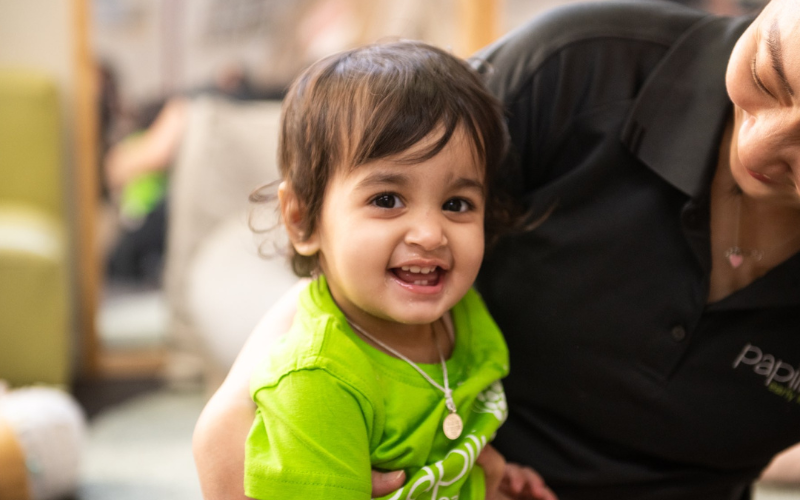
Building strong bonds with caregivers and educators is essential for a child’s emotional security and mental health. The relationships formed during early childhood lay the foundation for how children view themselves, others, and the world around them. Research shows that children who develop secure attachments early in life tend to have higher self-esteem, better emotional regulation, and stronger mental health outcomes as they grow.
The Role of Attachment Theory
Attachment Theory, pioneered by psychologist John Bowlby, and a key component of our Lifelong Learning Curriculum, suggests that children thrive when they feel safe and supported by a primary caregiver. According to this theory, secure attachments are formed when children feel that their needs - both emotional and physical - are consistently met. When caregivers respond to a child’s needs with warmth, attentiveness, and understanding, the child develops a secure attachment, which leads to a strong sense of emotional security.
Children with secure attachments are more likely to explore their environment, try new things, and engage with their peers. They know they have a “safe base” to return to in moments of uncertainty. According to the American Psychological Association, secure attachments are linked to higher emotional resilience and lower rates of anxiety and depression as children grow older.
The Power of Strong Bonds with Educators
In addition to parents, educators also play a crucial role in fostering secure attachments. At Papilio Early Learning, we recognise that children spend a significant portion of their day with our dedicated educators. When children form strong, trusting relationships with their educators, they feel supported, safe, and valued. These bonds promote emotional wellbeing and provide children with the confidence to navigate their learning experiences.
Studies have shown that children with strong connections to their teachers are 50% more likely to engage positively in their educational environment, which can lead to better mental health outcomes in the long run (Center for the Developing Child, Harvard University). At Papilio, our educators are trained to provide nurturing care and responsive interactions, which help children develop a secure sense of self.
Promoting Emotional Security Through Positive Living Skills
At Papilio, our Positive Living Skills program, part of the Lifelong Learning Curriculum, is designed to further support children’s emotional security. The program equips children with essential skills for mental and emotional wellbeing, focusing on developing positive self-esteem and building strong, healthy relationships. Children learn tools and strategies that not only help them now but will continue to support them throughout their lives.
Endorsed by Beyond Blue, a leading Australian mental health organisation, the Positive Living Skills program integrates emotional literacy and self-awareness into everyday learning. Through activities that encourage reflection, self-expression, and empathy, children develop the capacity to understand their emotions and the emotions of others, contributing to their overall mental health.
The Long-Term Benefits of Secure Attachments
Promoting secure attachments in early childhood has lasting effects on mental health. According to research from the National Institute of Child Health and Human Development, children with secure attachments are more likely to have healthy relationships as adults and experience lower levels of stress and anxiety. These children tend to handle challenges with resilience and are more adept at navigating social and emotional difficulties.
At Papilio Early Learning, we are committed to nurturing these important bonds through our positive, nurturing approach to early childhood education. Our educators, learning environments and curriculum ensure that each child feels supported, valued, and empowered as they grow.
Helping Children Develop Confidence, Self-Esteem & Mental Wellbeing
The importance of secure attachments in early childhood cannot be overstated. Strong bonds with caregivers and educators provide children with the emotional security they need to develop confidence, self-esteem, and mental wellbeing. At Papilio Early Learning, we foster these essential relationships through our responsive care and innovative programs, including the Positive Living Skills program.
By investing in these foundational relationships, we ensure that children have the tools and emotional support to thrive both in their early years and beyond.